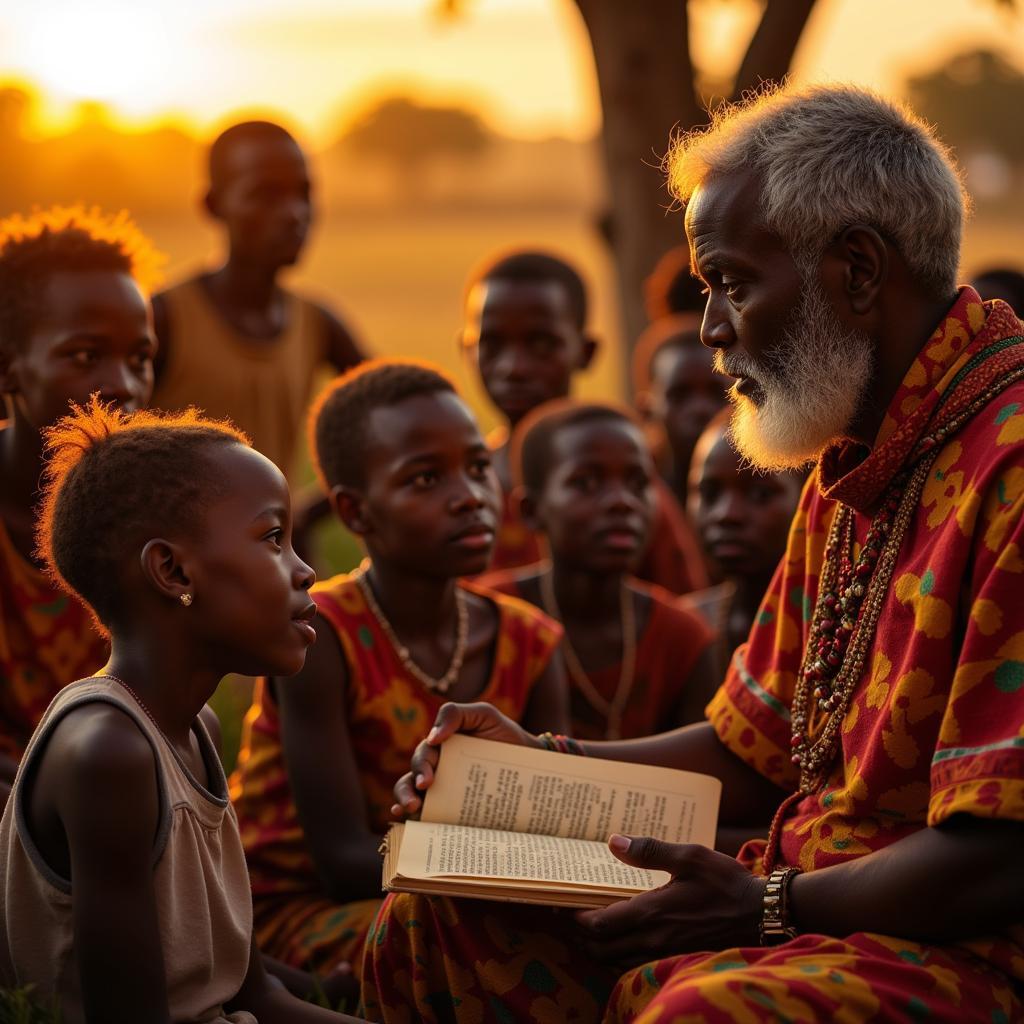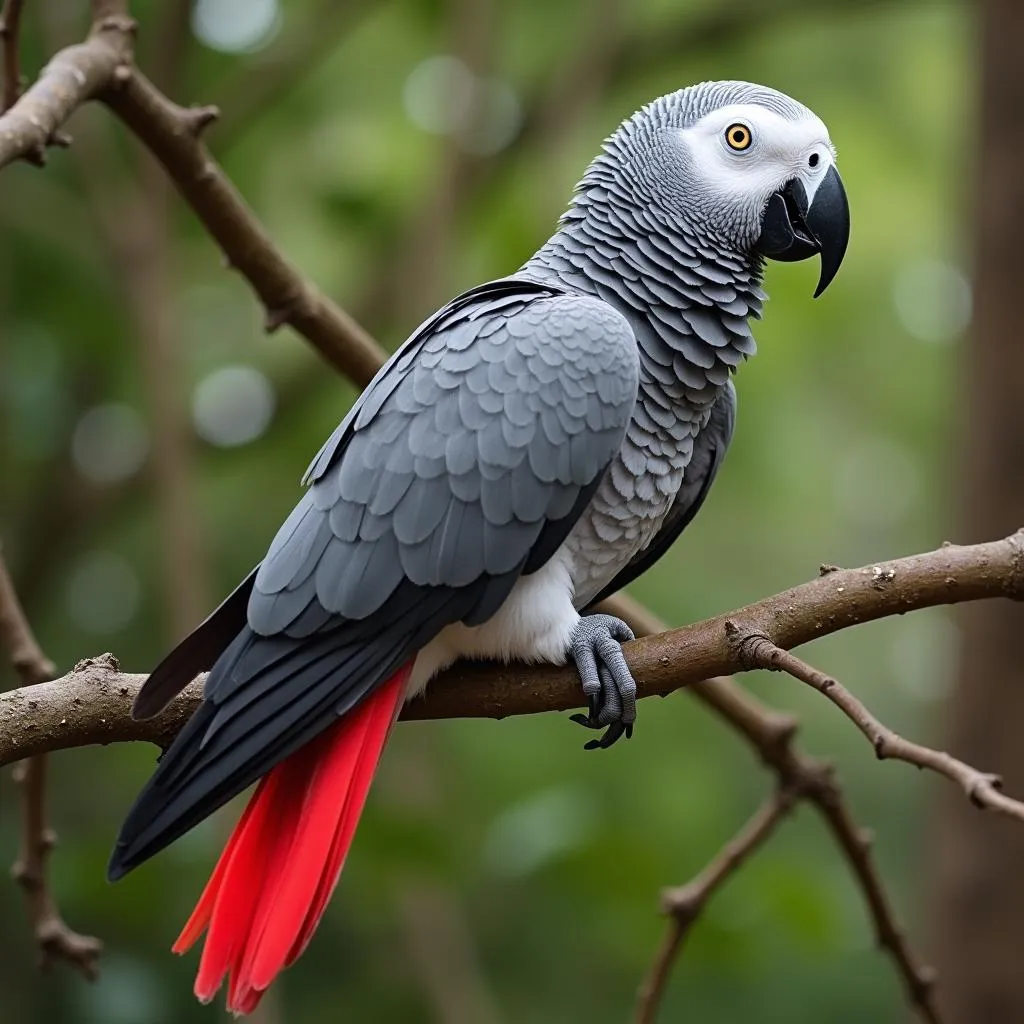African Elephant Endangered Level: A Deep Dive into a Conservation Crisis
The African elephant, an iconic symbol of the continent’s rich biodiversity, is facing a grave threat to its survival. Classified under “African Elephant Endangered Level,” these gentle giants are grappling with habitat loss, poaching, and human-wildlife conflict, pushing them closer to the brink of extinction.
Understanding the African Elephant’s Endangered Status
The International Union for Conservation of Nature (IUCN) recognizes two species of African elephants: the African forest elephant (Loxodonta cyclotis) and the African savanna elephant (Loxodonta africana). While both species were previously classified as “Vulnerable,” recent assessments paint a more alarming picture.
The African forest elephant is now listed as “Critically Endangered,” indicating an extremely high risk of extinction in the wild. The African savanna elephant is categorized as “Endangered,” signifying a substantial threat to its survival. These classifications underscore the urgent need for comprehensive conservation efforts to protect these magnificent creatures.
Factors Contributing to the African Elephant’s Decline
Several factors have contributed to the decline of African elephant populations, pushing them towards their current endangered levels.
1. Habitat Loss and Fragmentation
As human populations expand and development projects encroach upon natural habitats, African elephants are losing vital grazing grounds, watering holes, and migratory corridors. This habitat fragmentation isolates elephant populations, disrupts their social structures, and increases competition for resources.
2. Poaching for Ivory
The illegal ivory trade remains a significant threat to African elephants. Despite international efforts to combat poaching and ban the ivory trade, demand for ivory, particularly in Asian markets, continues to fuel this illicit industry, driving elephants towards endangerment.
3. Human-Wildlife Conflict
With shrinking habitats, African elephants are increasingly coming into contact with human populations, leading to conflict. Crop raiding, damage to property, and, in some cases, human fatalities can trigger retaliatory killings of elephants, further impacting their numbers.
The Importance of Conservation Efforts
The plight of the African elephant highlights the interconnectedness of ecosystems and the ripple effects that endangerment can have.
1. Ecological Significance
African elephants play a crucial role in maintaining the health and biodiversity of their ecosystems. As keystone species, they shape their environment through activities like browsing, digging for water, and creating clearings, benefiting countless other species.
2. Economic Importance
Tourism centered around wildlife viewing, particularly elephants, contributes significantly to the economies of many African countries. Protecting these animals ensures the sustainability of this vital economic sector and the livelihoods it supports.
3. Cultural Significance
African elephants hold deep cultural and spiritual significance for many communities across the continent. They are revered as symbols of wisdom, strength, and prosperity, making their conservation essential for preserving cultural heritage.
What Can Be Done?
Addressing the complex challenges facing African elephants requires a multifaceted approach involving governments, conservation organizations, and local communities.
1. Strengthening Anti-Poaching Measures
Enhancing law enforcement, increasing penalties for poaching and ivory trafficking, and utilizing technology for surveillance and monitoring are crucial to deterring poachers and dismantling criminal networks.
2. Protecting and Expanding Elephant Habitats
Establishing and effectively managing protected areas, creating wildlife corridors to connect fragmented habitats, and promoting sustainable land-use practices are essential for securing the future of African elephants.
3. Engaging Local Communities
Empowering local communities living near elephant populations through education, livelihood support, and conflict mitigation strategies fosters coexistence and encourages participation in conservation efforts.
Conclusion
The “african elephant endangered level” is a stark reminder of the fragility of our planet’s biodiversity. It is a call to action for individuals, communities, and nations to come together to protect these magnificent creatures for generations to come. By supporting conservation initiatives, promoting responsible tourism, and raising awareness about the plight of African elephants, we can all play a part in ensuring their survival. Let’s act now before it’s too late.
FAQs
1. What is the current population of African elephants?
The most recent estimates suggest that there are approximately 415,000 African elephants remaining in the wild.
2. Where can I learn more about supporting African elephant conservation?
Several reputable organizations dedicate their efforts to protecting African elephants. You can find more information and support their work through websites like the World Wildlife Fund (WWF), Save the Elephants, and the African Wildlife Foundation (AWF).
3. Is it ethical to participate in elephant tourism?
When done responsibly and ethically, elephant tourism can contribute to conservation efforts by providing economic incentives for local communities to protect elephants and their habitats. However, it’s crucial to choose operators committed to ethical practices, such as those offering elephant-friendly experiences that prioritize the well-being of the animals and avoid activities like riding or performing.
Still have questions about the African elephant’s endangered level or want to explore other fascinating aspects of African wildlife?
Explore more captivating stories and insightful articles on our website!
Looking for specific information about African currencies? Check out our comprehensive guides on the African currency naira, the African dollar rate, and browse through our collection of African currency pictures. We also have an insightful article that explains the conversion rate of 376078 South African currency rand to INR, which you might find helpful.
For any assistance or inquiries, feel free to contact us:
Phone: +255768904061
Email: [email protected]
Address: Mbarali DC Mawindi, Kangaga, Tanzania
Our dedicated customer support team is available 24/7 to assist you.



